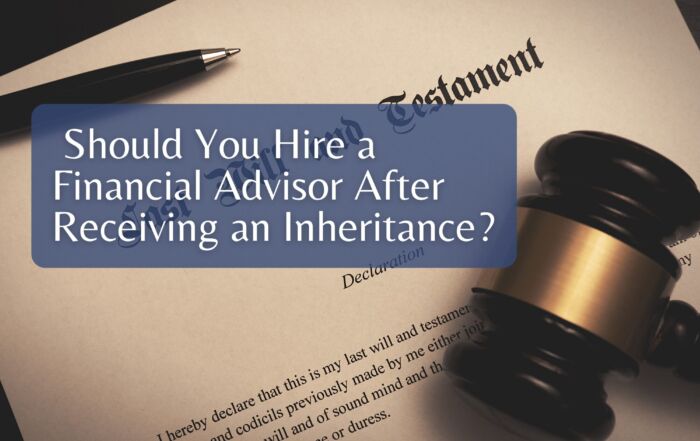How often should you check your investments?

In the ever-evolving world of investing, one question that often surfaces among both new and seasoned investors is “How often should I check my investments?” With the ease of online platforms and mobile apps, monitoring your investment portfolio has never been more accessible. However, the frequency of these check-ins can significantly impact your investment strategy and mental well-being. Let’s explore the ideal frequency for reviewing your investments and the factors that influence this decision.
Understanding the Balance: Regular Monitoring vs Obsessive Checking
1. The Importance of Regular Monitoring: Regularly checking your investments helps you stay informed about your portfolio’s performance and the broader market trends. It allows you to make educated decisions, ensuring your investment strategy aligns with your financial goals and risk tolerance.
2. The Risks of Over-Checking: Excessively monitoring your investments can lead to impulsive decisions, often driven by short-term market fluctuations. Market volatility is a normal part of investing. This behavior can derail your long-term investment strategy and may increase stress levels. It is best to check your investments less frequently, so that you can focus on the future.
How Often Should You Check Your Investments?
If you are a long-term investor with a horizon of more than five years, checking your portfolio quarterly or bi-annually is generally sufficient. This frequency allows you to stay updated on your accounts without getting caught up in the daily market noise. During periods of high market volatility, it’s tempting to monitor your investments closely. However, it’s important to resist the urge to make hasty decisions. Stick to your investment plan and review your portfolio at your regular intervals.
Factors Influencing Check-In Frequency
- Investment Goals: Your check-in frequency should align with your investment goals. Short-term goals may require more frequent monitoring compared to long-term objectives, where less monitoring is best to stay focused on the future.
- Risk Tolerance: Investors with a lower risk tolerance might feel more comfortable checking their investments more frequently. And that is ok, as long as it doesn’t become a daily event. If you are investing more aggressively and have a riskier portfolio, you may also feel more inclined to check your investments more often. Just understand that investing requires a healthy balance of patience and making informed decisions.
- Market Conditions: Be aware of current market conditions, but don’t let short-term fluctuations drive your investment decisions. It is ok to be concerned with the market, but keep your emotions out of investing. If you have concerns, it is best to address them with your financial advisor.
- Life Changes: Major life events like marriage, having a child, or retirement can necessitate a portfolio review. This is normal and common reason for a portfolio review and financial plan update.
It’s a Personal Decision
Determining how often to check your investments is a personal decision that depends on various factors including your investment strategy, goals, and risk tolerance. While staying informed is important, it’s crucial to find a balance that aligns with your investment approach and also your personal well-being. Remember that successful investing is often a marathon, not a sprint.
FAQs
- Is it bad to check my investments every day? For long-term investors, daily checks might lead to unnecessary stress and impulsive decisions. It’s more beneficial to keep your focus on the long-term.
- Can checking my investments less frequently actually benefit my portfolio? Yes, less frequent checks can help you maintain a long-term perspective and avoid knee-jerk reactions to market fluctuations.
- Should I change how often I check my investments during a market downturn? While it’s natural to be concerned during market downturns, sticking to a regular check-in schedule is recommended to maintain a long-term perspective.
Have more questions? Contact Us
Casey Smith
President, Wiser Wealth Management
Share This Story, Choose Your Platform!
Wiser Wealth Management, Inc (“Wiser Wealth”) is a registered investment adviser with the U.S. Securities and Exchange Commission (SEC). As a registered investment adviser, Wiser Wealth and its employees are subject to various rules, filings, and requirements. You can visit the SEC’s website here to obtain further information on our firm or investment adviser’s registration.
Wiser Wealth’s website provides general information regarding our business along with access to additional investment related information, various financial calculators, and external / third party links. Material presented on this website is believed to be from reliable sources and is meant for informational purposes only. Wiser Wealth does not endorse or accept responsibility for the content of any third-party website and is not affiliated with any third-party website or social media page. Wiser Wealth does not expressly or implicitly adopt or endorse any of the expressions, opinions or content posted by third party websites or on social media pages. While Wiser Wealth uses reasonable efforts to obtain information from sources it believes to be reliable, we make no representation that the information or opinions contained in our publications are accurate, reliable, or complete.
To the extent that you utilize any financial calculators or links in our website, you acknowledge and understand that the information provided to you should not be construed as personal investment advice from Wiser Wealth or any of its investment professionals. Advice provided by Wiser Wealth is given only within the context of our contractual agreement with the client. Wiser Wealth does not offer legal, accounting or tax advice. Consult your own attorney, accountant, and other professionals for these services.





